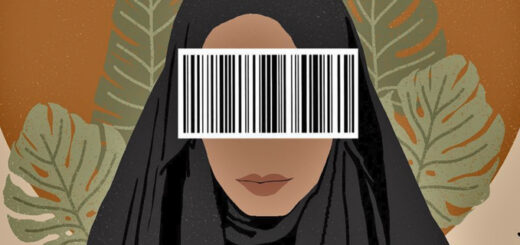"Who is afraid of love?". The story of a mother with a gay son
Dialogue of Katya Parente with the writer Flavia Ferroni
A few days ago this message came to us: “Good morning, I have been following you for a while with interest and admiration, since my son, at 16, has made coming out. It was the beginning of a wonderful path, which I feel push to testify, especially within the Church. I have just published a children's book, intended in particular in middle schools, hoping to offer a starting point for reflection and constructive dialogue between different generations. I'd like to know what you think. "
Those who sent it is, as can be understood, a mother, Flavia Ferroni, who today is our guest to talk to us about his story, who wrote in "Who is afraid of love?" (Publisher Simone, 2023).
Why write a book?
When my son, at sixteen, told me he was gay, a bomb broke out in my stomach. I thought I had an open mentality about homosexuality. However, at that precise moment, a theme that I previously addressed only with my head had materialized in my real life, also raid in the heart.
It was the beginning of an unexpected, difficult and beautiful path, in which I discovered that I was ignorant on the subject, and to have prejudices. Touching my son's suffering, precisely because of ignorance and prejudices, was painful, but at the same time he urged me to testify to my experience to contribute, in my little one, to the process of cultural growth of our society .
Writing is the communication channel that I do it best, from here I got the idea of writing a book.

Who is particularly addressed to?
To teenagers and their main interlocutors: teachers, parents, educators. The book is a narrative text intended specifically to middle schools, and is accompanied by an excellent teaching apparatus created by the Simone publishing house for the school.
In fact, my goal is to bring this theme to the classroom, and offer an opportunity for constructive dialogue between generations, to encourage learning, the aware development of one's ideas and the pleasure of mutual welcome.
Mothers are said to know everything. Did you suspect the homosexuality of his son before he came out?
Sinceramente no, e mi costa molto ammetterlo! Ci ho riflettuto molto: com’è possibile che il suo coming out mi abbia colta impreparata, nonostante abbia sempre avuto un bel rapporto dialogante con mio figlio? Il fatto che a casa non parlasse mai di relazioni amorose o di ragazze lo attribuivo al suo essere discreto e riservato.
A volte ho immaginato che altri potessero sospettare che fosse gay, ma snobbavo quei pensieri, perché derivati da stereotipi: se un ragazzo è sensibile, ha tante amiche e nessuna fidanzata, mica deve essere per forza gay. Il che è vero.
Ma il fatto è che l’ipotesi che mio figlio potesse essere gay non l’avevo considerata un’opzione plausibile, dato che non c’erano “prove” evidenti.
Com’è cambiato il vostro rapporto?
Senz’altro in meglio. La disponibilità a una condivisione profonda e autentica ci ha spalancato l’opportunità di conoscere aspetti nuovi e inattesi l’uno dell’altra, e di apprezzarci di più. Scoprire chi è mio figlio, così come anche le altre due mie figlie, è un percorso che non finisce mai, e che mi riempie ogni giorno di stupore. Gli sono molto grata per la fiducia che mi ha dato nel condividere con me il suo percorso di consapevolezza.
Gli ho chiesto scusa per le volte in cui, senza rendermene conto, ho detto o fatto qualcosa che lo ha ferito, o che non gli ha facilitato l’accettazione di se stesso. Gli ho chiesto di avere pazienza con me, e di perdonare la mia ignoranza. Lui si è sempre mostrato comprensivo e disponibile a spiegarmi.
I learned a lot from him, and I discovered that I had a rather limited idea of love. As a Christian I asked myself why the Catechism of the Catholic Church contains certain assertions towards homosexual relationships, which not only screech with scientific evidence, but also with the evangelical message.
Together with my husband, we decided to commit ourselves within the church because it opens up to a live listening of LGBT+people, and has the courage to remove unjust barriers. My son is very proud of our commitment to build a more inclusive society, and supports us with suggestions and feedback.
What do you recommend from to a parent who is facing the situation he has lived?
Listen first of all. Listening to the heart, with respect and attention, without assuming that they know more than them, without haste to have to say or do something, without judging. If the children say they are gay they don't do it to cause or by fashion. They are not communicating their choice: being gay is not decided and cannot be explained, that's how it is.
The children must be welcomed as they are, accepting that they are different from our expectations. We reciprocate their trust and honesty, embracing them and supporting them in their path of inclusion and acceptance, first of all in the family, without fear of the judgments of others. At the beginning the path is uphill, but then the road becomes easier, because inclusion is contagion
And to children who want to come out?
I found how to make coming out help to get rid of a great weight, and often signs the beginning of a path of construction of one's happiness, in complete freedom. So, in general, it is better before it is. But it is also true that everyone must evaluate the best way and the moment, based on their situation, without forcing.
In an ideal world, the coming out would make no sense, because everyone would openly live what is without the need to explicit their sexual orientation. But unfortunately in many environments we are still far from this utopia.
Sometimes, the social context and the family themselves are hostile. In that case, it may be useful to confront someone who trusted, perhaps an external figure, even just to try the experience of talking to someone. And then, slowly, to widen the field, as you feel safer and more protected.
I would say to the children who collide with a first closing reaction: don't be discouraged. Parents, like each of us, are conditioned by the education they have received. If you can, try to have patience with them. If you fight "with your head", that is, on the level of the principles and ideologies, perhaps you will not reach a meeting point.
But if you are, on both sides, willing to compare yourself with the heart, or to listen and welcome the experiences, limits, fears and questions of each other, probably, with time and with your help, they will be able to metabolize a reality to which they were not prepared. So you will have built a new, more authentic and firm relationship with them. It costs effort, but it is worth trying.
We thank Flavia, who wanted to share with us a delicate and not easy piece of her life. For those who want more information on the book, we refer to the link of the publishing house.






